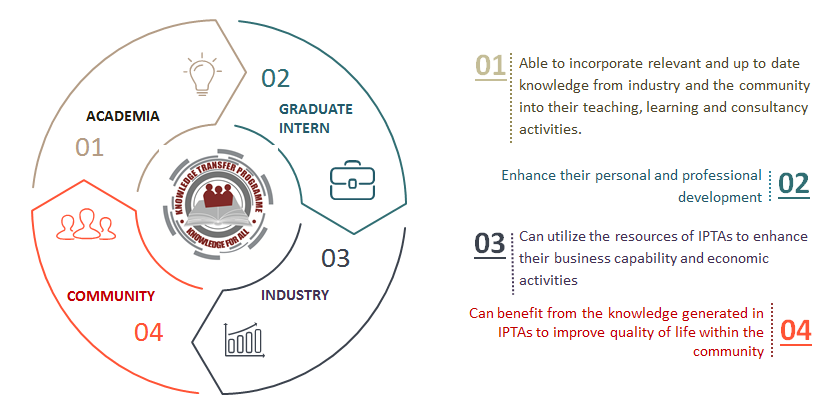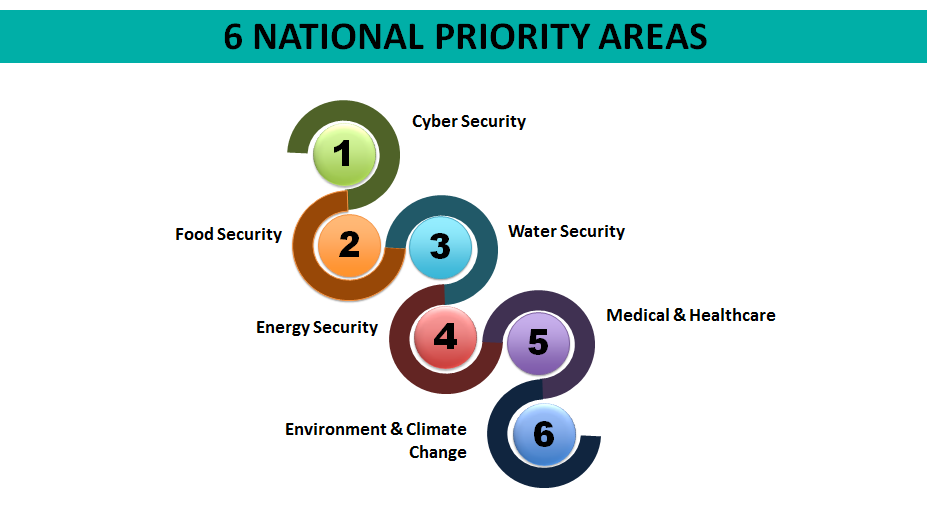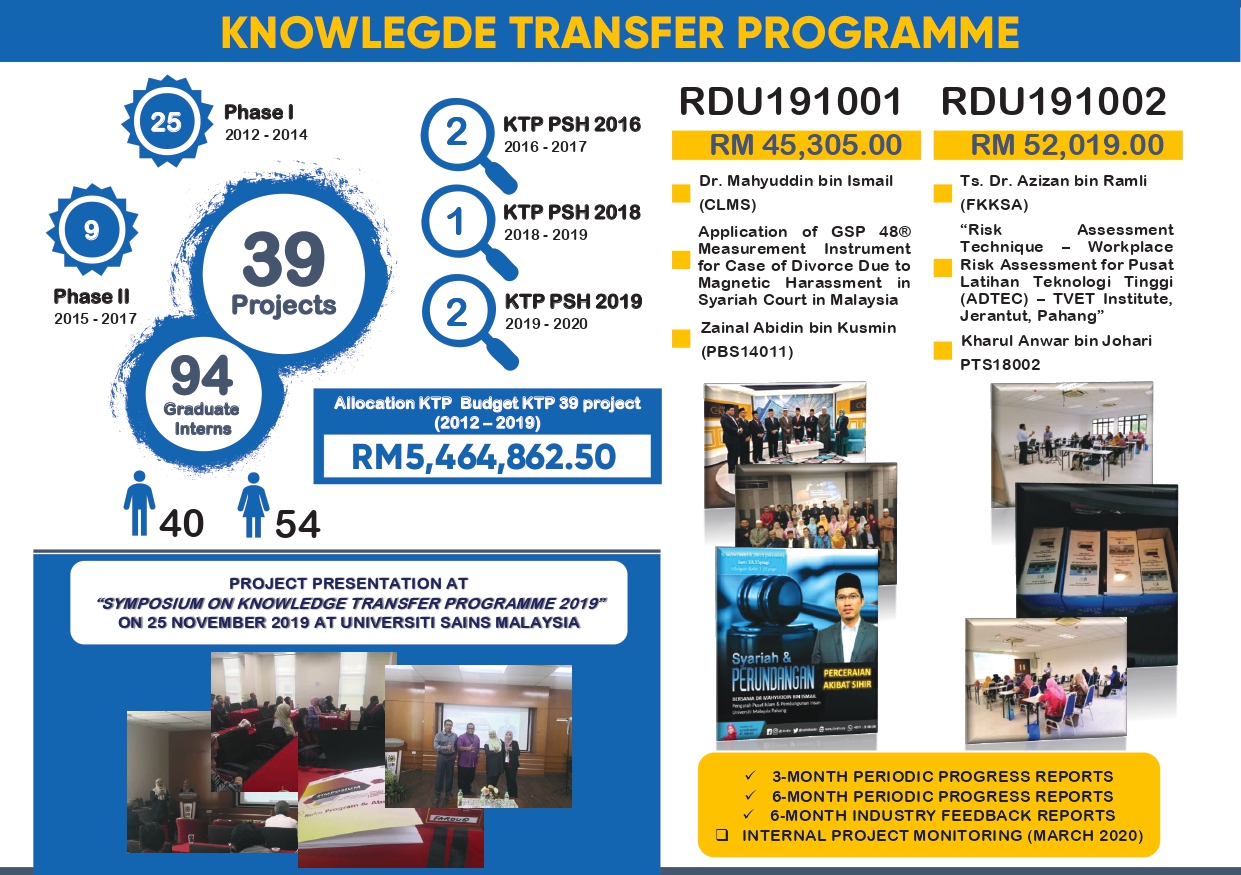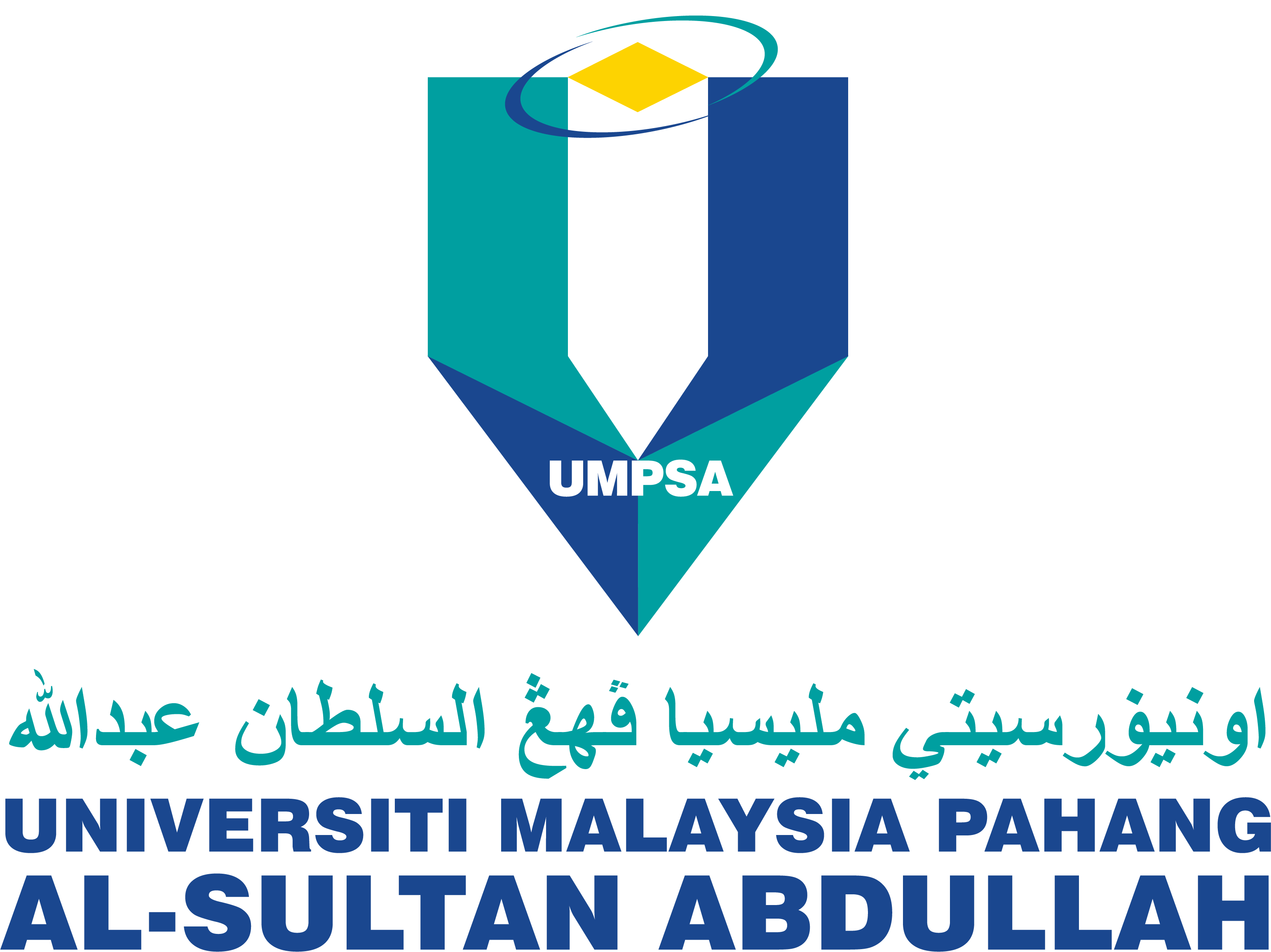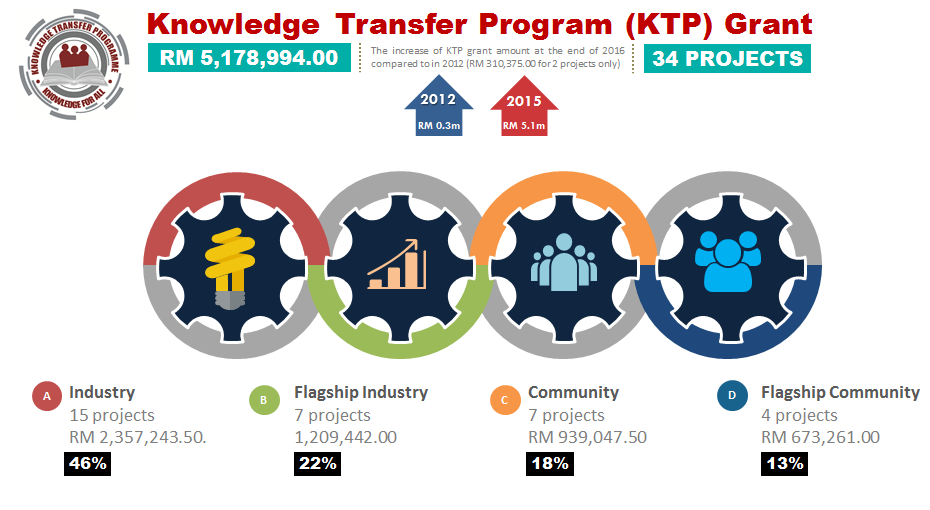
Knowledge Transfer Programme grant scheme is designed to encourage transfer of knowledge that has been generated in universities to the targeted industrial & community in order to broaden and strengthen the knowledge of the society via the following manners:
-
KTP recognises a broad range of activities to support mutually beneficial collaborations between universities, industries and communities (government agencies / Non-Government Organizations (NGOs)/public sector) ;
-
It provides the platform for the exchange of tangible and intangible intellectual property, expertise, learning and skills among academia, industry and the community.
-
The forms of interactions may include joint research, consultancy, education, training, graduate development, conferences, sharing of physical facilities and student placements.
-
Public Higher Education Institutions (IPTA) should effectively engage with industry and community towards mutually beneficial initiatives through role played by:
KTP as a Lifelong Learning Agent that improves the quality of human capital in Public Universities (academia and GIs) and organizations (SME, employees, communities, etc). The key is to transfer current knowledge, technology and best practices in six (6) National Priority Areas that includes teaching, learning, training and implementation of new technology in order to deliver the needs and demands of globalizations.
The objectives of KTP-PSH is :
-
To provide a platform for lifelong learning that enriches the quality of human capital in terms of knowledge and skills in the IHLs (Graduate Intern) and organization (SME industry and communities) based on the transfer of knowledge and technology in the 6 National Priority Areas (Cyber Security, Energy Security, Environment and Climate Change, Food Security, Medical and Healthcare, Water Security)
-
To recognize and promote the transfer of knowledge via the exchange of creative and innovative ideas, research findings, experiences and skills between UA, industries, government agencies and the wider community.
-
To enable the development and improvement of the quality of products, services and policies to be shared for mutual benefits between the stakeholders i.e. academia, industry, community and the graduate intern.
